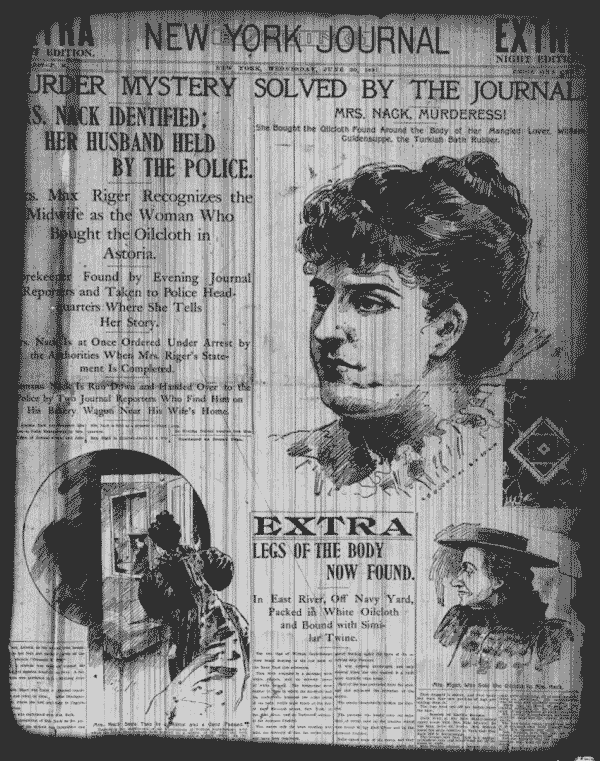“The dirty world printed in the newspapers is our own,” wrote Thomas Bernhard in his final novel, Extinction. The same might be said of Norman Lebrecht’s blog Slipped Disc, perhaps the only publication to write about classical music the same way people in the industry speak about it in private. Though the site has been described as the Breitbart of classical music, it might be more accurate to compare it to the now-defunct Gawker. It can be nosy, nasty, and flat-out wrong, and yet, to the consternation of many, it is at times required reading. A few weeks ago, I met with Lebrecht over coffee in Berlin, close to the Philharmonie. He had just finished an appointment at the orchestra and wore a blue suit and a blue polka-dotted shirt. Though I often disagreed with Lebrecht, I found him to be warm and engaging in conversation.
VAN: What is the role of Slipped Disc in what’s left of the world of classical music journalism?
Norman Lebrecht: The history is, I had been a TV producer and then assistant editor at one of the London newspapers, and I got out of it because it was unsatisfying. You didn’t have any real contact with the readers; you were under pressure the whole time to generalize and overexplain, which made your writing dull. So I thought, if I could develop a more shorthand style that was directed at people who don’t need to be told who Gustav Mahler was, that might be something interesting.
I don’t know if it has influenced others. I haven’t stopped to look. I just look at how it’s developing its own momentum and style. I’m connected in the business in an ambivalent way. I know pretty much everybody, and they’re wary of me, because every now and then I catch them doing something they shouldn’t be. And that’s a healthy position for a journalist. It’s probably the only one you should have.
Are you personally interested in the industry gossip? Or would you rather be writing about Mahler, and you cover the gossip so that people read your site?
They’re both fun. Mahler has been an obsession for most of my life, and there are people with whom I have the most unspeakably nerdish Mahler conversations, about a possibly miswritten sharp or flat. And I love that immersion.
[The gossip] is the human comedy, that’s what I like. I came into music because nobody was writing about it in a way that interested me. Musicologists were writing arcane and abstruse things which had no relation to who the composer was, where he or she was at that particular time in her life. They weren’t answering the questions of, “Why is this piece meaningful to me, why is this phrase meaningful to me?” In the way that you’d ask in every other human transaction from the restaurant to the bedroom. And so I started asking those questions.
What is important to somebody who’s just got out of bed, had a shower, got dressed, and is having their morning coffee? It’s not Sibelius Four. It might be, “What happened to this conductor last night?”

Where do the mistakes on Slipped Disc come from? They happen fairly often, if we’re honest.
I make mistakes. All journalists make mistakes. At a newspaper you have, or used to have, sub editors, who would come back to you and query things. That’s where you picked up most of your errors. I don’t have that. Slipped Disc is fast, and it’s very often first. If it’s not first, I just won’t do the story. It relies always on a source I trust, wherever possible with corroboration. But occasionally we’re going to make mistakes.
If I could afford a sub editor, then these things wouldn’t happen. One day I’ll be able to, and then they won’t. Should I be bothered about them, as much as some of the querulous critics of Slipped Disc, some of whom have particular interests and envies, pretend to be? Should I be in hysterics over a particular error? No, because as soon as somebody notifies me of an error, I correct it. It’s gone. That was this morning’s news. Get a life.
Over a 96-hour cycle, it corrects itself. And then as a database, it then becomes a database of record. I couldn’t afford to make serious mistakes because I’d be sued. This…legend that Slipped Disc is peppered with errors is not something that keeps me awake at night. Certainly over the long term it’s not true, and over the short term, it just gets corrected.
In 2007, the Naxos executive Klaus Heymann sued your publisher for libel over a passage in the book Maestros, Masterpieces and Madness: The Secret Life and Shameful Death of the Classical Record Industry. In The Independent, Andrew Johnson wrote that you “inspir[ed] fear, loathing and respect in those whose careers [you] could push out of joint with a few acerbic words from [your] pen.” Was that ever true?
How absolutely bloody flattering [laughs]. If I thought I was destroying people, I wouldn’t dare to put my fingers to the keyboard. I’m not a killer. I have a conscience. And much of what I do is informed by an ethical sensibility. It’s a little bit of a myth that was put out about me that I could [Darth Vader voice]: destroy people.
Another falsehood: I didn’t lose the libel case. The publisher decided to settle over my head instead of fighting it.
So you stand by what you wrote?
Yeah, the substance of it. The UK publisher settled. I think fewer than 50 copies were pulped. In the paperback, we changed—I can’t remember exactly, but it was not more than five errors on a single page.
The latest from VAN, delivered straight to your inbox
You were one of the first people to know that James Levine had been accused of sexual assault. In Who Killed Classical Music?, you alluded to that using a pseudonym for Levine, but never found corroborating evidence. As a journalist, was it hard to sit on that story for so long?
You can only do what you can do. If you can’t find enough for it to stand up in court, then you can’t publish. I wasn’t witness to any of these events. What I had was letters and documents from people who told me what had happened to them. But Levine wasn’t speaking, and none of his people would respond. And on the one occasion where I had information that he’d been arrested, which was in London, I checked with the Metropolitan Police, and they said that he wasn’t charged, therefore they had no record. So there wasn’t anything more I could do, which was frustrating. In a wider context, I’ve always complained against the abuse of power in classical music in any form. This was taking a sexual form, which was particularly odious.
Of much greater concern to me is actually who was involved in the Levine coverup. To what extent were they involved? How do they look themselves in the mirror? Whatever the Met has said through its lawyers, there were more people who knew of this. Various others have come forward to me since then.
But Jeff, what are we doing as journalists? We’re here trying to make the world a little bit less worse. We can’t do much more than that.

On Slipped Disc, you shared the jacket of the musicologist William Cheng’s book Just Vibrations: The Purpose of Sounding Good (2016), writing sarcastically, “And you thought [musicology] was about understanding the history and meaning of music? How very quaint.” Where does this distrust of musicology come from?
“Distrust” of musicology? I’m at war with musicology as a whole, alright? I’m not the first person to say this, but musicology is a phony discipline.
Why?
It’s like parapsychology. It’s a cultish thing which makes up its parameters as it goes along. It started out as a quasi-science. In the late 19th century, people were calling everything Wissenschaft. And so this became Musikwissenschaft. Probably the first credible musicologist was Guido Adler, Mahler’s friend, who was actually a pioneering scholar of Gregorian chant and early church music. The people who followed in Adler’s wake were not scientists, but fact-based scholars, at least.
After that it went through two phases. The first phase was its academization, in which they turned it into a kind of forensic study of the notes. That’s not of interest to musicians, who just want to play what’s on the page, and it’s not of interest to people who love music. And then it went to the next phase, where music is actually not about music at all anymore, it’s about values. It’s about social equality, and it’s about inclusivity and how all musics are equal.
You don’t believe that?
I don’t. Call me a heretic.
Are we talking about the music of all composers, or the music of all cultures?
All the musics of different cultures. I do not believe all musics are equal. Do you?
Yes, I do. I definitely don’t believe that classical music is better than, say, gamelan music.
I’m open to many kinds of music. I love gamelan, Arabic music, pop and rock music, classical music and what we used to call “light music.” I’m absolutely promiscuous in my musical tastes. But I do know the difference between the sophistication and refinement of a page of Richard Strauss or Pierre Boulez, and an improvised non-score for varied percussion instruments. And if you’re going to tell me that banging dustbin lids has the same cultural value as a Brahms symphony, I would say, “I’m out of here.” It’s unfashionable. I don’t care. I will make that judgement call.

But it also works in the opposite way, right? For me, the MC Madlib is more sophisticated than Nicola Porpora.
With hip hop, besides the words, what are we getting? I struggle with that.
The music can be incredibly sophisticated.
Can it?
Yes.
Really? Can you send me some examples?
Sure.
If I agree with you I’ll change my mind. We listen to a lot of shit. And a lot of it is classical shit.
My colleague Zack Ferriday and I chose three hip hop selections to send to Lebrecht: music by The Cinematic Orchestra, Quasimoto (with Madlib), and Edgar The Beatmaker. At press time, I hadn’t heard if Lebrecht had changed his mind. “I’m still working on my hip hop,” he wrote in an email.
I agree.
We are shit removers. We say, “Don’t go there, it’s rubbish.” And it may be that we’re wrong.
There’s good music and bad music. Let’s just try and find the good stuff. But I see it as a falsehood to say that simplified music forms are equivalent to sophisticated music forms. It’s like saying that the witch doctor is as good as my general practitioner.
Isn’t the effect of the music on the listener more important than the “sophistication”? I love to listen to techno because of the way it puts me in a trance.
They serve different needs. There may be times when you’re walking past a Michelin-starred restaurant and there’s a McDonald’s next door, and you’re starving, so you go into the McDonald’s and stuff your face. Other times, you book your table at the Michelin-starred restaurant, and you’ll have a leisurely time and appreciate the difference. I feel the same about music.
But can we then say that what was developed over centuries of refinement, in European classical music, with the use of ever-more-precise instruments and ever-more-inventive techniques has a quality or value that transcends, say, the—I’m speaking of something of which I’m completely ignorant—but the advancement of didgeridoo music among native people in Australia? I think probably one might. It doesn’t mean that I’m denigrating didgeridoo music, but if you compare the two in terms of sophistication, you’re comparing a Michelin-starred restaurant and McDonald’s.
What interests me in music is how we go from here to there. Hopefully it gets better. It may be that hip hop is developing in quantum leaps and you’re going to persuade me that from its rather rough street beginnings to where it is in the middle of 2018, it traversed a comparable journey. If you do, hats off.

Is it just me, or are the commenters on Slipped Disc particularly nasty?
You know, we moderate. So the really nasty ones don’t get in. But I say this all the time to musicians when they feel hurt by something a commenter has said: “There are people out there who are saying this about you, and you’re better off knowing. Deal with it.”
Among those who follow classical music, there’s a strong body of people who are extremely frustrated with their lives. Maybe they’re failed musicians or have had failed relationships or are unhappy with their work. And they can’t bare to see somebody doing well, it really beats at their guts. These people need to be given an outlet. They don’t have an outlet anywhere. And some of them—and that’s really pleasing—have their minds changed, because the other commenters leap in on them and say, “Substantiate that comment.” And so there is a debate going on; I don’t read all of it, but some of it is very lively.
In the interests of free speech and open society, we don’t cut much out. Only the defamatory stuff, the vileness, and the unctuous satisfaction at other people’s misfortune [he makes a disgusted face].
When is the Slipped Disc redesign coming?
[Laughs] Oh shit. It so needs it, doesn’t it? ¶
Subscribers keep VAN running!
VAN is proud to be an independent classical music magazine thanks to our subscribers. For just over 10 cents a day, you can enjoy unlimited access to over 875 articles in our archives—and get new ones delivered straight to your inbox each week.
Not ready to commit to a full year?
You can test-drive VAN for one month for the price of a coffee.


Comments are closed.